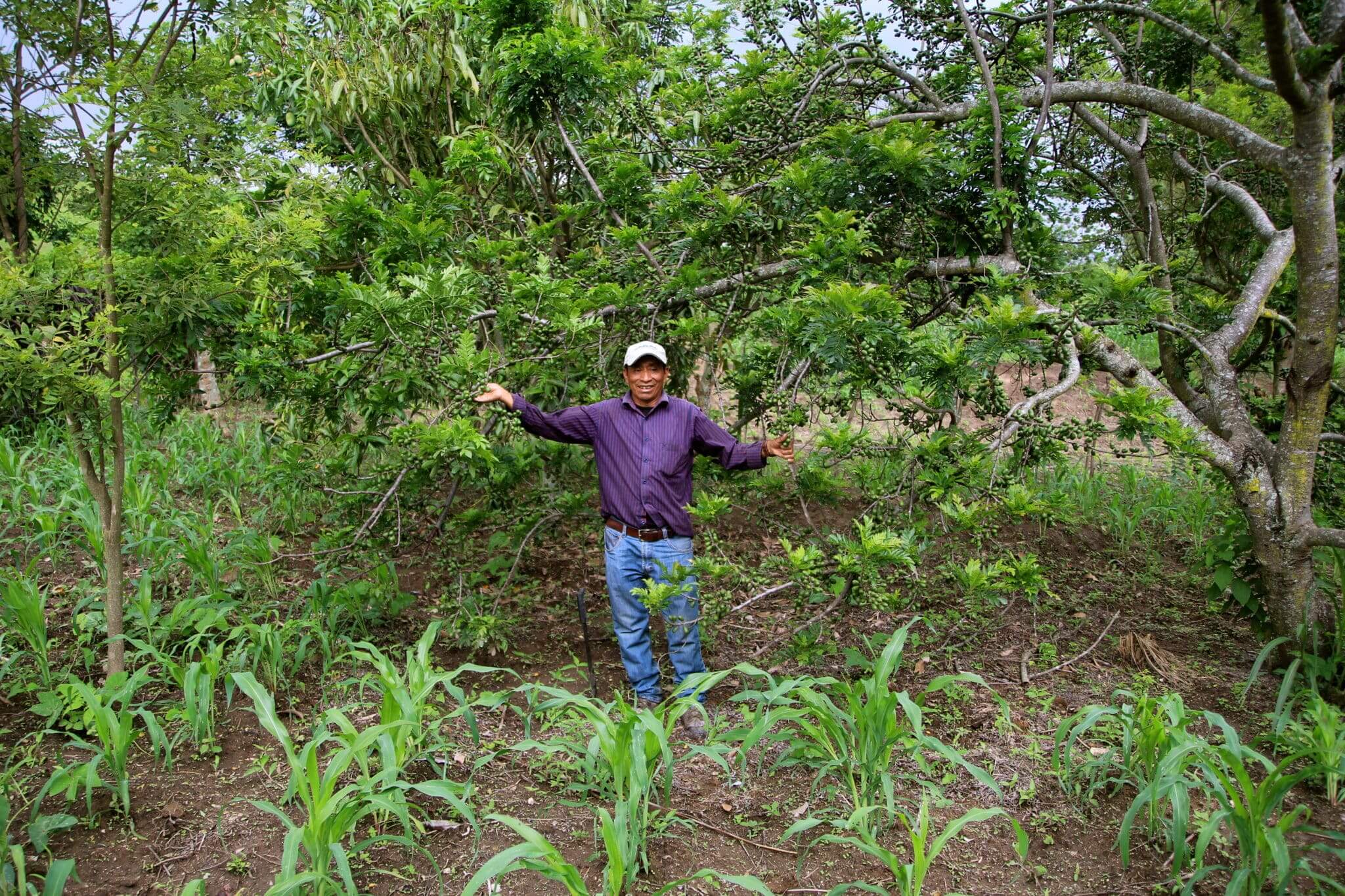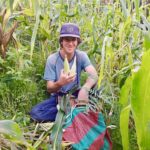Regenerative Thinking is a regular column for Wicked Leeks by Nathan Einbinder, programme lead at Schumacher College, on food, farming and social change.
It wasn’t long after I started working in Central America that I met the survivors of Rio Negro, who changed my life forever. Indigenous farmers like Cristobal Osorio, who after losing his entire possessions and most of his family to horrific violence and displacement, dedicated his life to recovering traditional practices and crops that define his community’s resilience and identity.
And women like Josefa Sic, who years after the destruction of her village returned to the land of her birth to recover the soil and trees, and replant the heirloom seeds of maize her father had buried moments before the soldiers arrived.
These are the individuals and stories of perseverance, and hope, that give me perspective in moments of despair.
As well, these are the experiences that introduced me to the power behind food and agriculture; and the importance of leadership and visionaries – superheroes, I’ll call them – as catalysts for transformation.
Everywhere you look – in cities and countryside, indigenous and non-indigenous territories alike – there are superheroes, growing food for themselves and their communities, protecting and regenerating the land.
They are the dreamers and change-makers of the food and farming world, driven by their conviction and an inner knowing of what’s right and what’s needed. They are the risktakers and disrupters; thinking outside the box and putting ideas into action, no matter what their contemporaries say.
As an educator and course leader, I take every opportunity to bring students to meet and learn from the superheroes I’ve met along the way. Trailblazers like Marina O’Connell and crew at the Apricot Centre, radical grain breeder Fred Price, rogue innovator Ben Taylor-Davies (aka Regen Ben), and hopefully soon, activist Gerald Miles at his CSA farm Caerhys, in Wales.
In the British context, it’s about changing nearly everything. Farming with nature instead of against it, trading harmful inputs to those that encourage life, recovering what’s left of ancestral knowledge and crop varieties, bringing diversity – and people – back to the land. And beyond that, changing values and mindsets.
It’s a daunting task, often overwhelming. But that’s where the superheroes come in. They show us what’s possible – what the future could look like. They push the envelope into new territories, unafraid to experiment and sometimes fail.
But perhaps the most important role of the superheroes is their potential for leadership – which feels increasingly critical as we deepen into global crisis. As I’ve seen in Guatemala, we long for strong and confident voices of opposition, and examples. We need the outlier superheroes to organise and inspire us, as well as provide a model of better, more harmonious and less destructive ways to live.
From my perspective, anyone growing food has the potential to be a superhero – anyone involved in food, for that matter. As Guy Singh-Watson recently told me and my students, most farmers know and want to do what’s right, though they are so stifled by the current system they feel disabled to do so.
To facilitate transition and take ‘opposite farming’ (a term borrowed from Regen Ben) to scale, we must support them. We must value them, acknowledge their sacrifices, knowledge and courage.
And ultimately, we must demand policies that reign in the unbridled capitalism that’s taken over the food system – keeping them trapped and feeling unable to make the necessary moves towards what’s right and what’s needed, for all.














Nice piece on visionary leadership in farming. I believe we’re well into that transition, and extra political pressure will help move things on apace.
‘…anyone growing food has the potential to be a superhero – anyone involved in food, for that matter.’
Anyone, for that matter… ! 🙂